Law Students Give Back on Spring Break with Pro Bono Service Trips
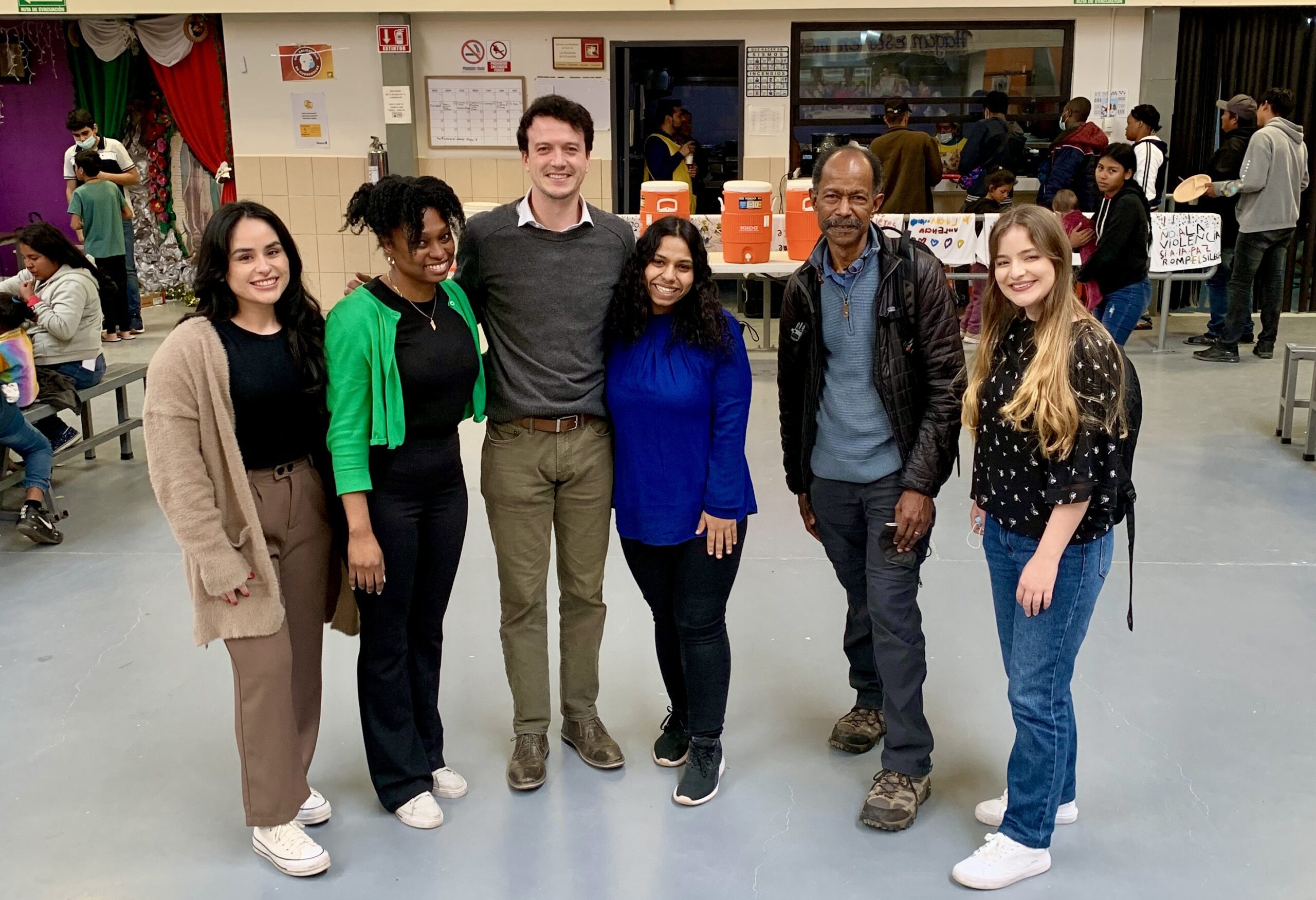
Janice Espinola ’25, Sherene Grinage Gotoy LLM ’24, Will Martel ’24, Maryam Samimi ’25, Professor Richard Boswell, and Maria Clara Ribeiro Siqueira ’25 (left to right) visited a migrant shelter in Nogales, Mexico, as part of an immigrants’ rights advocacy trip in March 2023.
UC Law San Francisco students put their legal knowledge to work over spring break – helping asylum seekers, those trying to expunge their criminal records, and clients in rural communities.
They traveled as far as New York state, Texas, and Arizona, where they interviewed detained immigrants, researched veterans’ benefits laws, and supported public-interest organizations.
The service work was part of the law school’s annual Alternative Spring Break trips. Five trips were organized by the Center for Social Justice at UC Law SF, and one was sponsored by Students for Immigrants’ Rights at UC Law SF.
“Alternative Spring Break gives students an opportunity to immerse themselves in a social justice issue and to work directly with clients,” said Brittany Glidden, co-director of the Center for Social Justice. “During the week, students develop legal skills and internalize the importance of pro bono work to our legal system.”
Las Americas Immigrant Advocacy Center—El Paso, Texas
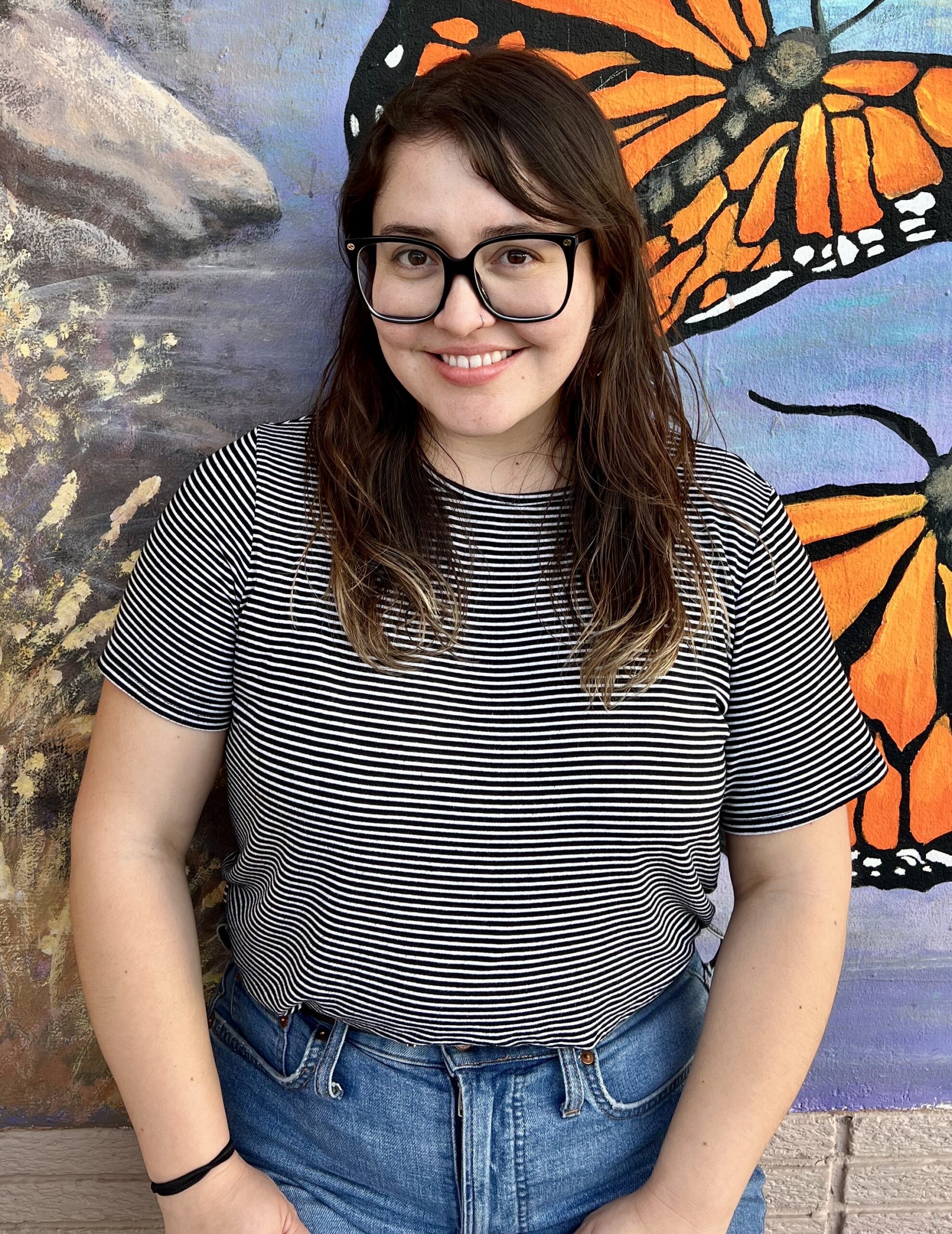
Valeria Vera ’25 did pro bono legal work to assist immigrants in West Texas during spring break.
Valeria Vera ’25 is one of six students who traveled to El Paso, Texas, to work with an organization that provides free and low-cost legal services to immigrants and refugees in West Texas and New Mexico.
Vera and the other students visited two immigration detention centers, where they interviewed detained immigrants and asylum seekers, some of whom said they were subjected to abuse and denied due process rights. “It was tough but critical in my development as an attorney to be in detention and speak to clients there,” she said.
Vera helped research conditions in asylum seekers’ countries of origin, drafted declarations on behalf of immigrants, and wrote a legal brief for a client in Mexico who was appealing a decision that permanently barred him from reentering the U.S.
Legal Assistance of Western New York – Rochester, New York
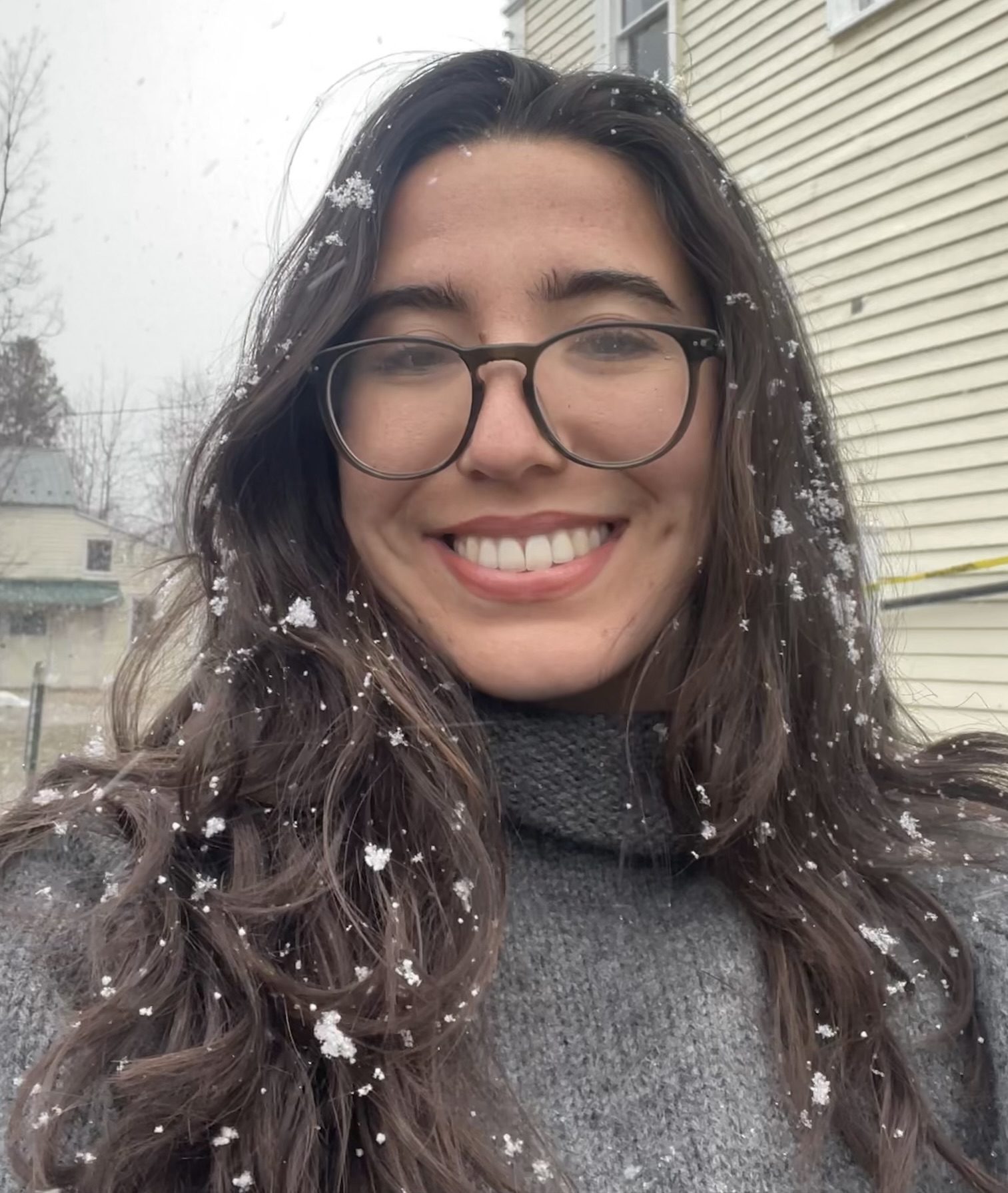
Vivyana Prado ’25 provided legal assistance to people in rural communities in Western New York.
With a goal of helping people in rural communities who have a hard time accessing legal services, four students traveled to western New York to work with an organization that assists clients with housing, employment, healthcare, and public benefits.
The students interviewed new clients, researched and wrote legal documents, shadowed attorneys, and watched live legal proceedings.
Vivyana Prado ’25 helped write a letter to a local government official about the denial of a request for police body camera footage. She also researched laws related to veterans’ benefits. “I learned about the challenges that are faced when providing legal representation to rural communities,” she said.
Legal Services of Northern California Reentry Project – Ukiah, California
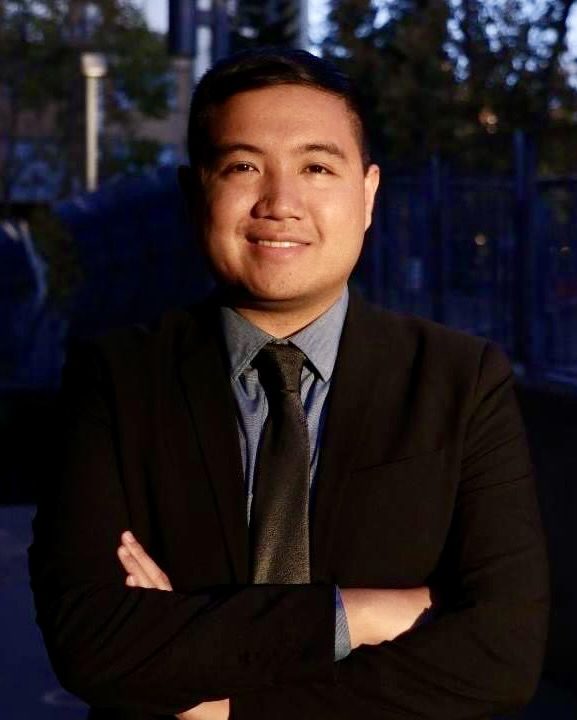
Justin Pedroso ’25 helped people in Northern California expunge convictions from their criminal records.
Knowing that a criminal record can make it harder for people to secure jobs, housing, and other essentials, four law students traveled to Mendocino County to help people in rural communities get prior convictions expunged.
The students interviewed clients, gathered information, and helped explain the process for getting records cleared. Justin Pedroso ’25 said he met with clients who were actively trying to turn their lives around but having trouble getting jobs and supporting their families.
“I gained a better understanding of how probation and parole work, as well as how criminal convictions can negatively impact the lives of the formerly incarcerated as they work towards rehabilitation,” Pedroso said.
The LGBT Asylum Project – San Francisco, California
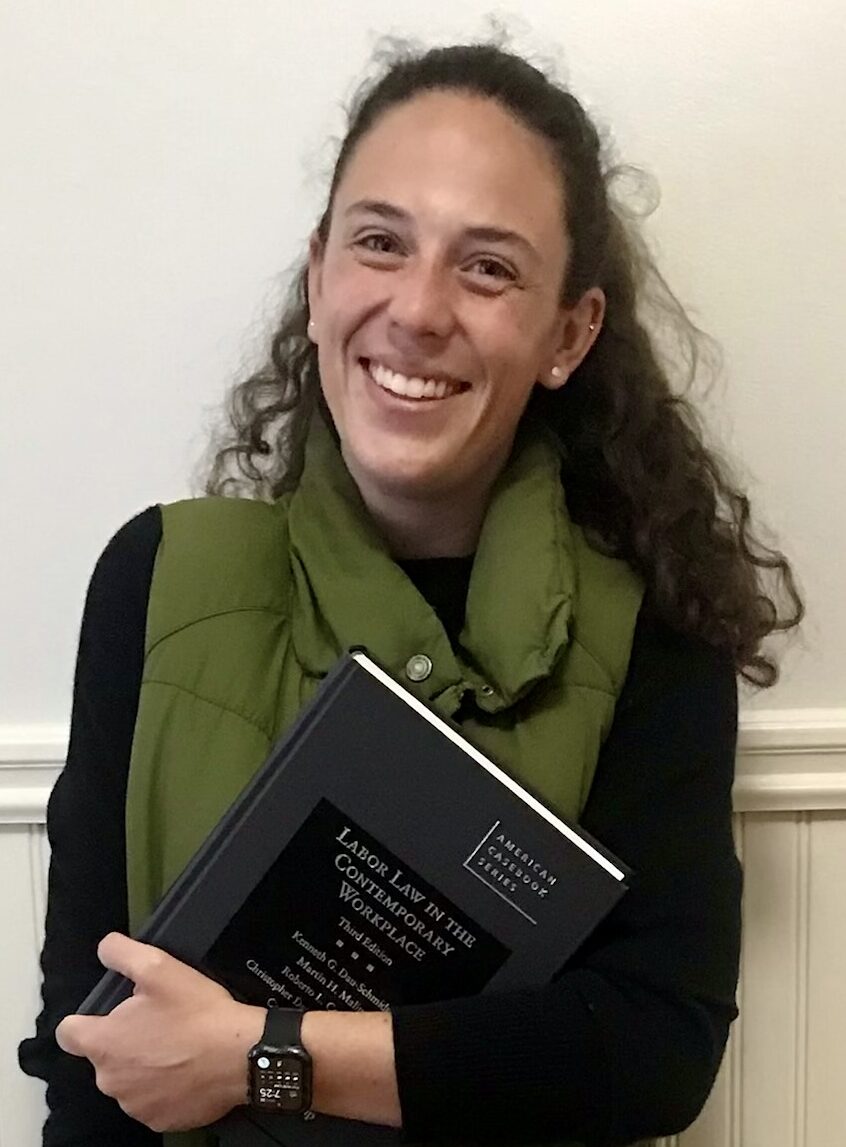
Zoë Grimaldi ’24 helped a mother and her young son apply for refugee status while working with The LGBT Asylum Project in San Francisco.
Ten law students volunteered with an organization that provides pro bono legal assistance to LGBT asylum seekers fleeing persecution based on their sexual orientation, gender identity, and/or HIV status.
The students helped asylum seekers apply for legal refugee status, researched conditions in foreign countries to support asylum requests, shadowed an immigration attorney, observed immigration court hearings, and met with a U.S. immigration judge.
One of the students, Zoë Grimaldi ’24, said she spoke with a mother and her young son and helped translate from Spanish to English information for their asylum applications. “This experience made it clear to me how under-resourced and under-valued our legal immigration system really is,” she said. “I still believe our team made a difference because we helped a few more people take their next steps to becoming legal, fellow citizens.”
The Florence Project – Tucson, Arizona
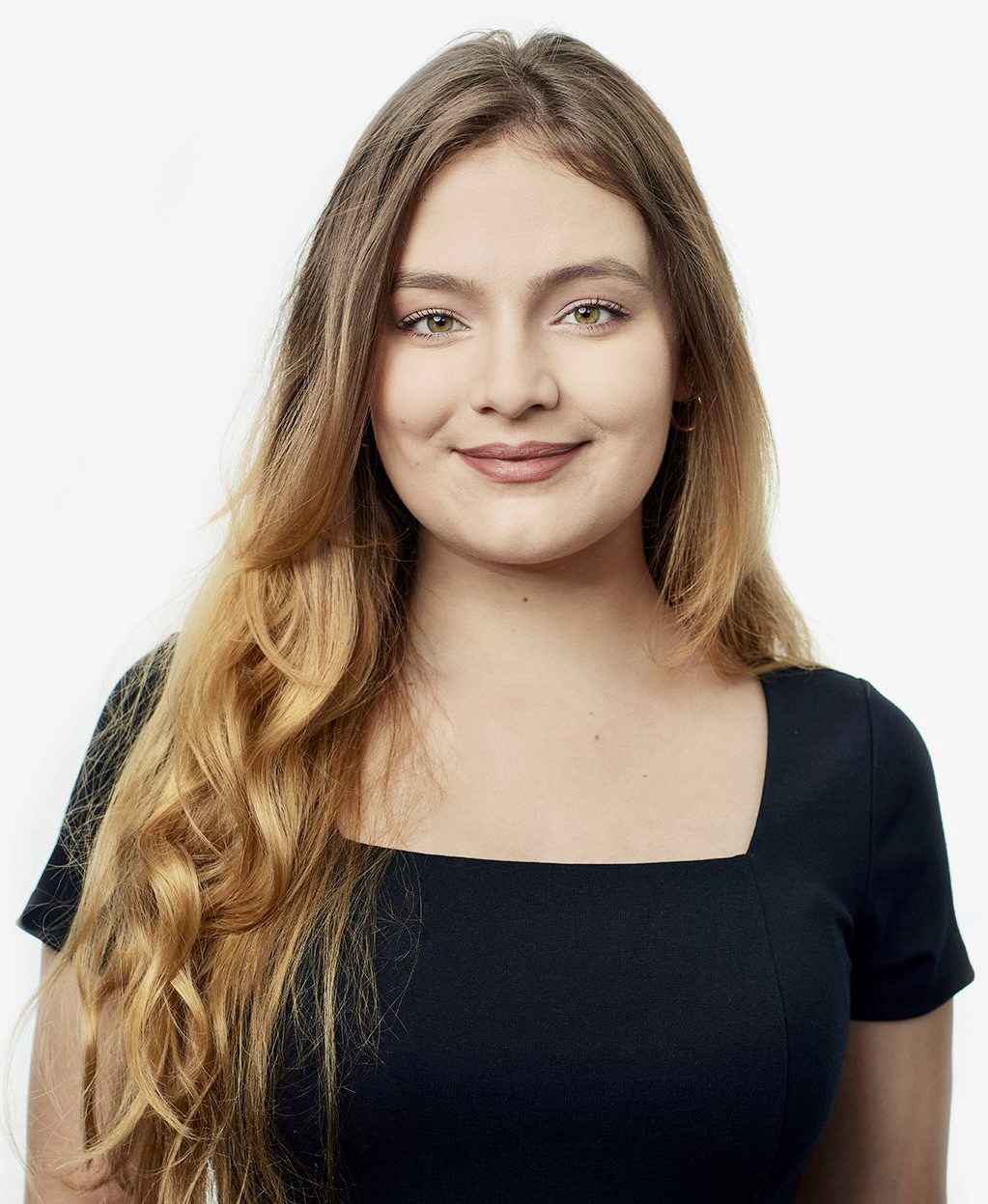
Maria Clara Ribeiro Siqueira ’25 visited detention centers in Arizona and a migrant shelter south of the U.S.-Mexico border as part of an annual immigrants’ rights advocacy trip.
Five students visited two detention centers in Arizona, where they watched a live immigration court hearing and talked with an immigration judge afterwards. They also toured a migrant shelter south of U.S.-Mexico border and spoke with immigrants about their harrowing journeys.
During the trip sponsored by Students for Immigrants’ Rights at UC Law SF, the students met Chelsea Sachau ’20, managing attorney of the Florence Project’s Border Action Team, who started the annual advocacy trip when she was a student at UC Law SF.
Before the trip, law students researched border policies and asylum laws in a seminar taught by Professor Richard Boswell. Maria Clara Ribeiro Siqueira ’25, said of her experience, “Seeing the lack of access to legal aid most migrants experience further established my plans of doing pro-bono work for asylum seekers or immigrants like me once I graduate.”
Fresno County Public Defender’s Office – Fresno, California
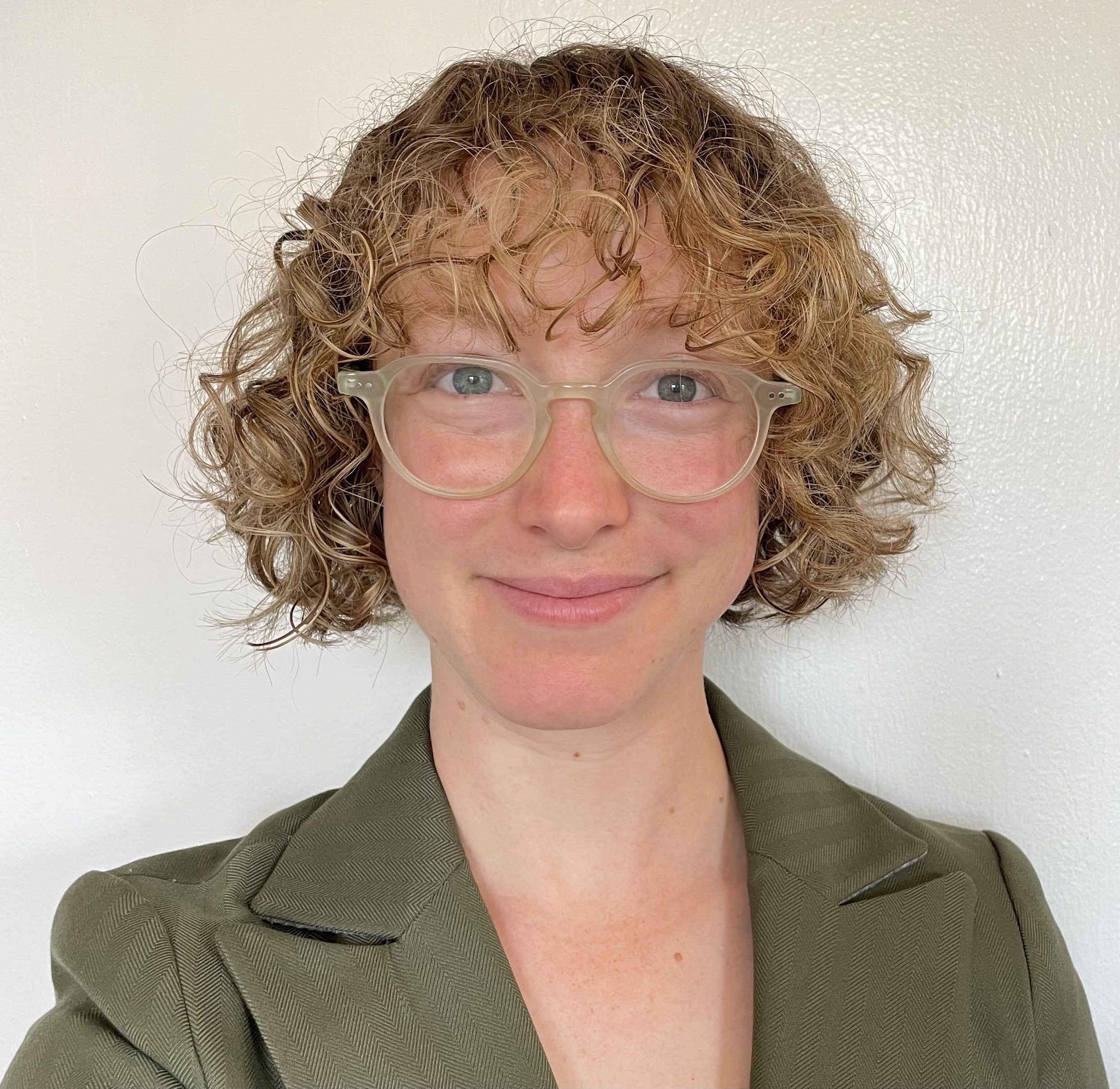
Ellen Slatkin ’25 drafted motions to dismiss charges against two criminal defendants while working with the Fresno County Public Defender’s Office during spring break.
Six students, including Ellen Slatkin ’25 and Maxwell Bessard ’25, spent the week working with public defenders in Fresno County, where they shadowed licensed attorneys, attended court hearings, helped clients expunge their criminal records, and met with judges and social workers.
Slatkin said she used skills developed in her legal research and writing classes to draft motions to dismiss charges against two criminal defendants. She also interviewed people previously convicted of crimes and wrote declarations to help get their records cleared.
Through this experience, Slatkin said she gained mentors and friends and honed her practical legal skills, “This week affirmed that being a public defender is what I want to do with my career. I am so grateful for this opportunity.”